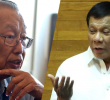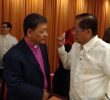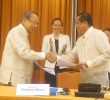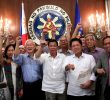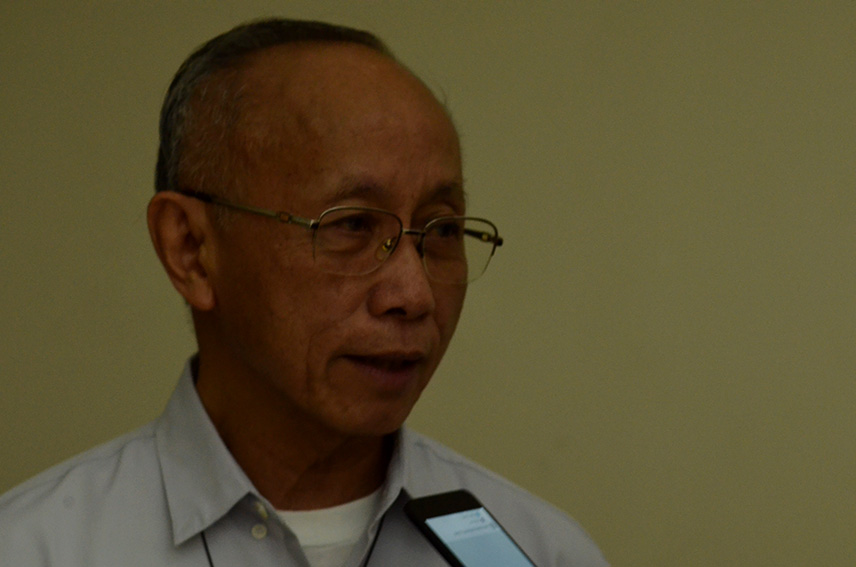
Archbishop Antonio Ledesma, SJ, co-chairperson of the PEPP. (davaotoday.com file photo)
DAVAO CITY, Philippines — The Philippine Ecumenical Peace Platform, a network of five major religious groups in the country, lauded on Tuesday the Royal Norwegian Government for facilitating the second round of peace talks between the Government of the Philippines and the National Democratic Front.
In a press statement, Archbishop Antonio Ledesma, SJ, co-chairperson of the PEPP, said he was impressed with the progress of the peace talks between the government and the communist rebels.
“The progress that has been made on agreeing on a framework for the Comprehensive Agreement on Social and Economic Reforms by both parties is impressive,” Ledesma of Archdiocese of Cagayan de Oro said.
He added “we are looking forward to the public consultations that will begin to further fill out what these reforms will be in detail.”
Fr. Rex RB. Reyes, Jr. general secretary of the National Council of Churches in the Philippines (NCCP) and also co-chair of the PEPP, viewed the planned amnesty for the 434 political detainees as “a very important confidence boosting measure that prepares the ground for even more progress to be made on reaching common understanding between the two sides.”
He also pointed out that the ongoing talks are not without difficulties, referring to the interim bilateral ceasefire agreement which both Parties would sign on Oct. 27.
“The will of both sides to ensure that the ceasefire is strictly enforced, with any violations being monitored and effectively dealt with before they give rise to the escalation of continued violent encounters, is very important, according to Reyes.
“That the two sides in such a long and protracted war are now actually discussing the root causes of the armed conflict, are serious about a ceasefire agreement, and are showing a commitment to move towards a negotiated peace is something for which our nation and our people have been yearning for decades” Ledesma further explained.
He added that “peace is the hope of all people, but we are aware that peace is not simply the silence of the guns, but must be based on justice and meaningful change for the majority of our people who suffer in poverty.”
“If this kind of peace is not established, and the hunger and suffering of the majority continues, no matter how much talking happens, the violence of the past will resurface again,” the group noted. (davaotoday.com)

